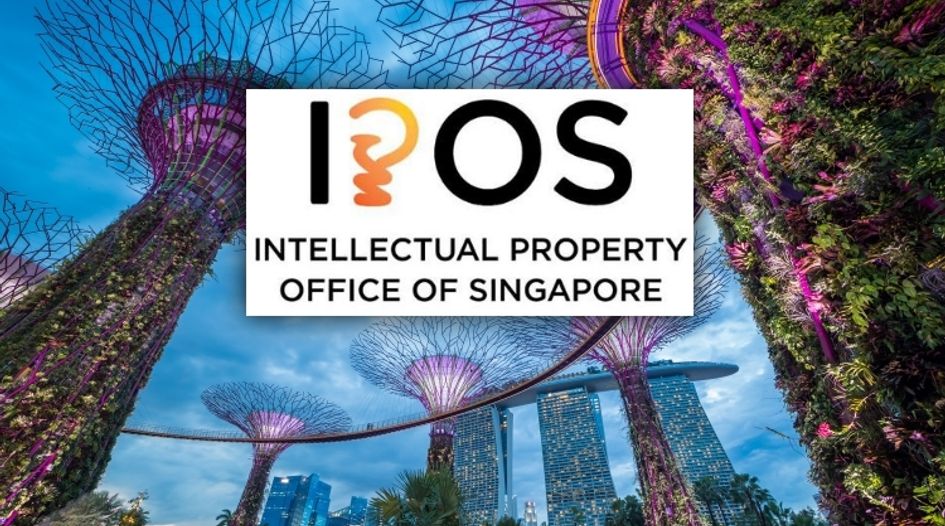Singapore ranked world’s most innovative IP office in exclusive research

- Intellectual Property Office of Singapore (IPOS) ranked most innovative IP registry
- IPOS narrowly ahead of previous leader EUIPO after new initiatives launched
- Concerns raised include outdated websites and incorrect trademark information
In newly-released research from WTR, the Intellectual Property Office of Singapore (IPOS) has been ranked as the most innovative IP office in the world for the first time. As trademark professionals the world over adapt to the challenges brought on by the coronavirus pandemic, the results of the IP Office Innovation Ranking shine the spotlight on how boundary-pushing tools and services – especially in the digital space – are able to help users in even the most difficult times.
The findings are part of the fourth annual edition of WTR’s IP Office Innovation Ranking, our ambitious project to identify the IP offices across the globe that are committed to exploring value-add non-core offerings for users. Our aim with the project is to highlight how many IP offices are doing more than just managing an intellectual property register, and to also identify registries that may be falling behind.
This year’s ranking, which analysed 50 IP offices from around the world, is topped by the Singaporean registry for the first time. In the last three editions of our research (2017, 2018 and 2019), the EU Intellectual Property Office (EUIPO) topped the list, but it now sits closely behind IPOS, in second place. That’s not to say the EUIPO has slipped in any area – indeed, it continues to excel in most metrics. The result is therefore more indicative of the IPOS continuing to improve in various key areas, including its refined online platform and its ongoing push to help firms commercialise their trademarks and brands. Indeed, it comes only a matter of weeks after IPOS chief executive Daren Tang secured the nomination to head the World Intellectual Property Office (WIPO), with his success at least partly down to his pledge – made in WTR – to transform IP offices “from administrating registries to innovation agencies”.
IP Innovation Ranking 2020: full ranking (top 25 of 50)
- 1. Singapore
- 2. EUIPO
- =3. South Korea, Spain, United Kingdom
- 6. Chile
- 7. Australia
- =8. Mexico, Switzerland, Turkey, United States
- = 12. Japan, Russia
- 14. France
- =15. Austria, Norway
- =17. China, Sweden, Vietnam
- =20. Colombia, Morocco, Peru, Thailand
- =24. Brazil, Czech Republic, New Zealand, Philippines
The 2020 IP Office Innovation Ranking focused on 50 of the leading trademark offices from around the world. In order to fully analyse the pioneers amongst this group, we examined three areas in particular detail – value-added propositions, online capabilities and public outreach efforts. This year, we added a new metric that hasn’t been looked at in detail before: the use of AI functionality at IP registries (examples including website chatbots or AI-powered image search). In all, we contacted more than 100 counsel around the globe and invited them to offer their insights on the non-core services provided by their local registries, with results rooted in what tools and services that local trademark experts are aware of.
The IPOS was found to be narrowly ahead of the pack due to a number of new initiatives introduced in the past 12 months. For example, in April 2019, IPOS introduced the Mediation Promotion Scheme wherein parties can receive funding of up to S$10,000 or up to S$12,000 if foreign IP rights are added to the subject matter of mediation, regardless of the mediation outcome. The first successful outcome of this took place in November 2019 and was described by mediator Joyce Tan as “groundbreaking”. On top of that, IPOS also recently launched a phone application and a commercialisation hub called IPOS International.
Elsewhere, the EUIPO continues to lead the way in its educational and web services, and its collaborative effort to help other IP registries was repeatedly lauded by respondents. The Korean IP Office (KIPO) rose to third in the ranking, helped by a strong focus on educational and social media programmes in 2019. The Brazilian, Chilean and Thai registries were praised for their work with SMEs, while IP Australia stood out this year for “significant investments and improvements” in its digital tools (it topped the list of digital offerings with IP New Zealand).
There were, however, some concerns raised by users, especially around digital tools and services. For example, the Ukrainian IP office website was described as “technically outdated and unfriendly for mobile use”, the Malaysian registry’s site as “poor and not user friendly” and the Italian registry’s website was labelled by one local users as “one of the worst websites of all the IP offices worldwide”. There were also frustrations voiced over incorrect or outdated information on some IP office websites, including issues in Mexico, Peru and Portugal.
Overall, though, our research revealed the strides being made by most IP offices in terms of the innovative and value-add services that they are offering. While there are still some significant issues that need addressing (especially with IP offices that still do not offer online trademark filing or that have prevalent website downtime), the outlook is positive – and such innovative efforts (especially at registries that offer 100% digital trademark maintenance) are increasingly important in the weeks and months ahead.
The full analysis of our exclusive research is now available to WTR subscribers here.
